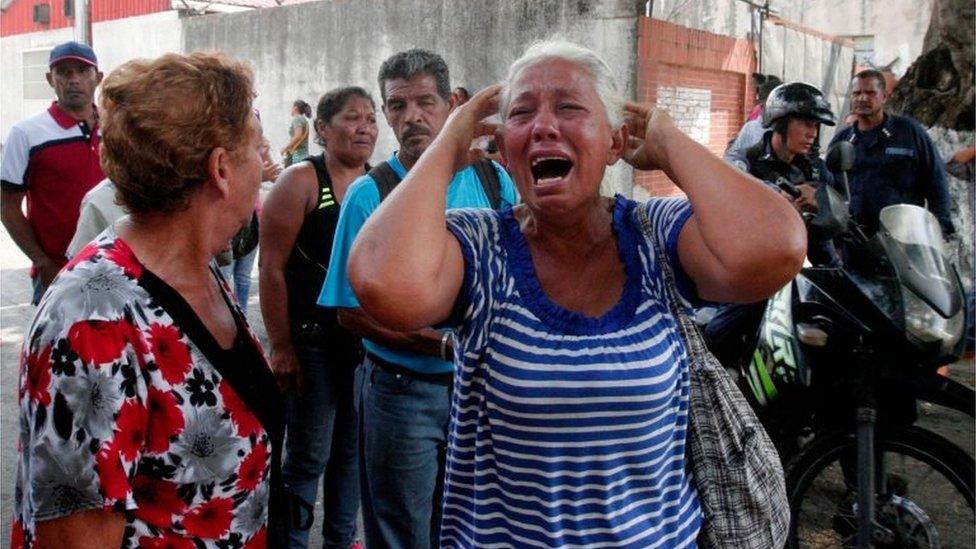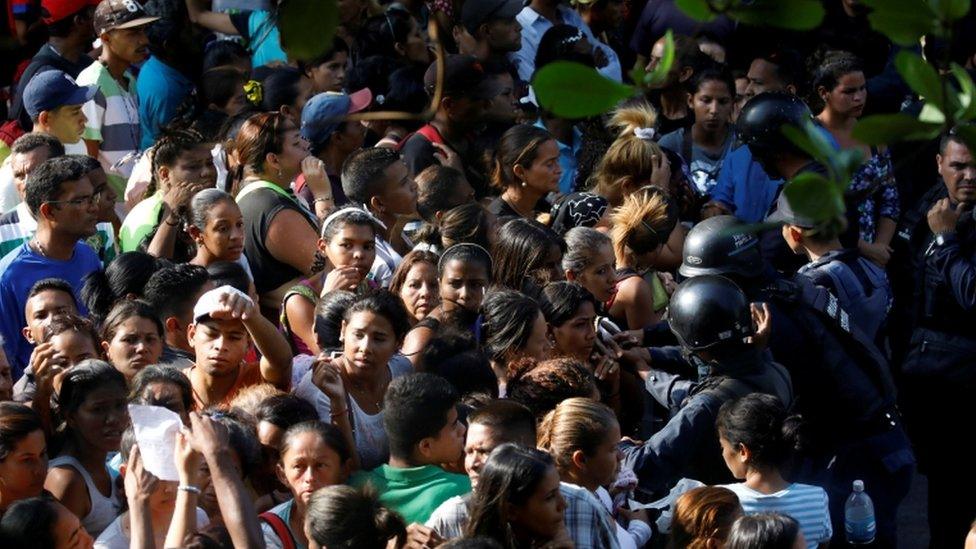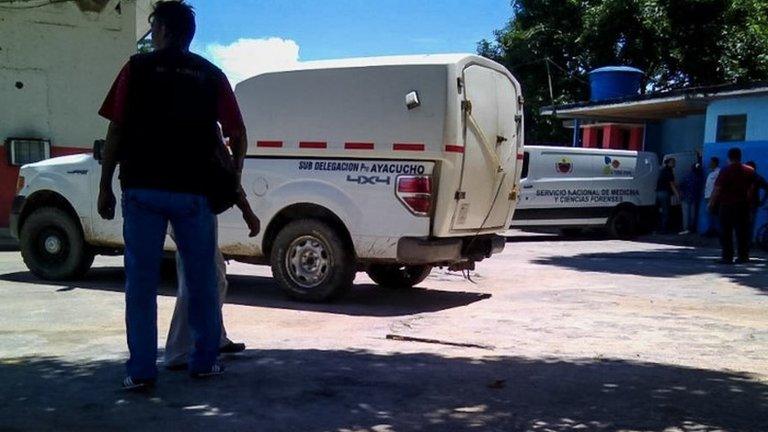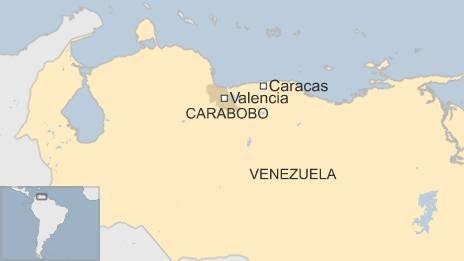Venezuela fire: Relatives want answers after 68 die
- Published
Police used tear gas to disperse crowds desperate for news of loved ones
Relatives of 68 people who died when a fire broke out at a police station in the Venezuelan city of Valencia have demanded answers as to what happened.
The blaze reportedly started after prisoners set fire to mattresses in an attempt to break out on Wednesday.
The United Nations has called on the Venezuelan authorities to carry out a speedy investigation and to provide reparations to victims' families.
The fire is one of the deadliest incidents in Venezuela's prisons.
On Wednesday, anguished relatives had gathered in front of the police station demanding information about their loved ones.
They were dispersed by police firing tear gas.
Chief prosecutor Tarek William Saab said 66 men and two women, who had been visiting the cells overnight, were killed in the blaze. He also said that an investigation would be launched "immediately".

Venezuela's worst prison tragedies:

What happened at the police station?
The circumstances surrounding the fire have not been officially confirmed.

The association Una Ventana a la Libertad (A Window on Freedom), which monitors jail conditions, said its reports showed a police officer had been shot in the leg by a detainee and that shortly afterwards mattresses in cells were set ablaze and the fire quickly spread.
Mr Santander did confirm one police officer had been shot.
Rescuers reportedly broke through walls to try to free those trapped by the blaze.
Nearly all of those who died were inmates but at least two women who were visiting at the time were also killed, Mr Saab said.
Some of the victims burned to death, others died of smoke inhalation.
What has the response been?
Angry relatives gathered outside the detention centre and clashed with police as they sought information about loved ones.

Relatives complained they had been given no information

Aida Parra, who said she had last seen her son the day before, told the Associated Press news agency: "I don't know if my son is dead or alive. They haven't told me anything."
Dora Blanco told local media: "I am a desperate mother. My son has been here a week. They have not given any information."
The government has set up an inquiry.
Carabobo state governor Rafael Lacava expressed his condolences, adding: "A serious and profound investigation has been initiated to find the causes and those responsible for these regrettable events."
What's the state of Venezuela's penal system?
Facilities are notoriously overcrowded, with violence and deadly riots common.
The country has struggled to accommodate its prisoners amid an ongoing economic crisis, leading to the use of temporary facilities such as the one in Valencia.

'De facto prisons'
By Daniel García Marco, BBC Mundo, Caracas
Many police stations in Venezuela are being used as de facto prisons. Their holding cells were built for 30 to 40 people but often hundreds are crammed inside awaiting trial or transfer to a proper jail.
Detainees can sometimes spend years there. When I visited such a police station several months ago in Caracas, I saw dozens of men sharing a very small cell. Their relatives came twice a day to deliver them some food which the prisoners shared among themselves.
Carlos Nieto of Una Ventana a la Libertad says that about 45,000 people are currently locked up in 500 police stations across the country. He says that a disaster like the one that happened in Valencia could "happen anytime, anywhere and [the next one] could even be worse".

Inmates are supposed to be held for only 48 hours in police holding cells.
Una Ventana a la Libertad says some police facilities are overfilled at five times their capacity.
The organisation says that 65 people died last year in temporary cells due to violence, disease or malnutrition.
- Published17 August 2017

- Published1 September 2015
